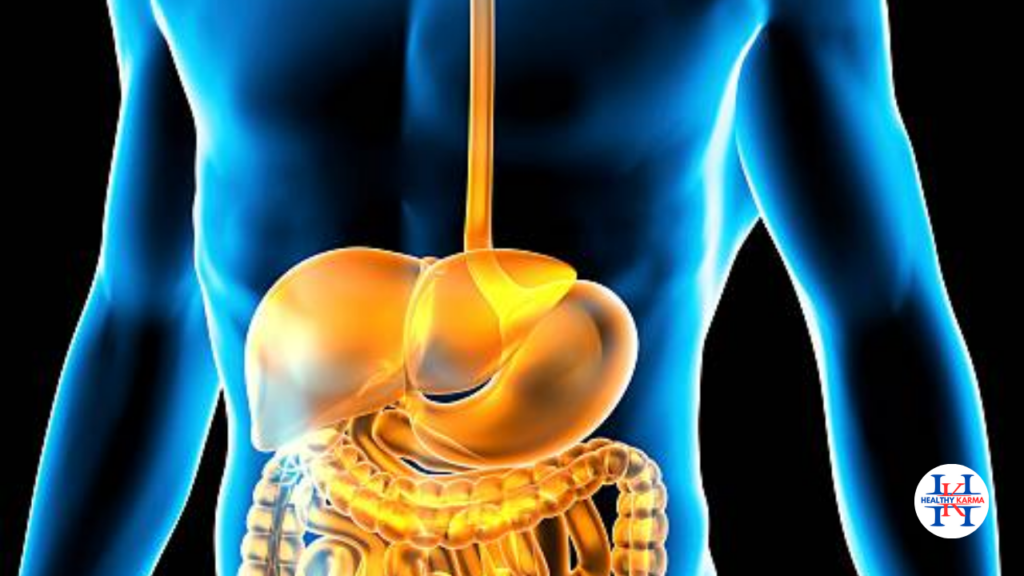

Navigating Digestive Health: Key Dietary Strategies for Common Disorders
The human body follows thousands of processes daily through its complex systems. One of the most important and complex systems in our body is the digestive system which handle processes that are related to our stomach.
Most people frequently deal with digestive disorders in their daily lives as the digestive system is not in order.
These problems might be anything from little discomfort to more serious illnesses that affect general health. People can effectively treat and prevent common digestive ailments by being aware of them and choosing appropriate diets.
the most common digestive disorders
acid reflux
This common condition in the body results in a condition called heartburn and causes discomfort usually in the stomach and the throat when the excessive acid levels in the stomach acid comes backs up into the Esophagus. This usually happens when there is a excessive consumption of foods containing high levels of acid that is heavy on the digestive system to digest properly
This condition in the body is characterized by a sense of fullness, tightness, or swelling in the belly and is known as bloating in technical terms. This is usually accompanied by the formation of gas in the body.
The most common symptoms of excessive levels of pain, discomfort, and occasionally noticeable abdominal distension. Bloating can also result from an imbalance in the levels of bacteria in the gut or from an accumulation of extra gas in the digestive tract. Certain types of foods, particularly those containing acids and carbonated drinks, among others.
constipation
The excretion system’s inability to consistently pass waste in the body, which causes pain and straining when having bowel movements. The symptoms of constipation in the body include hard, dry stools, difficulty passing the stool, and infrequent bowel motions. Symptoms including bloating, discomfort in the abdomen, and a sense of incomplete evacuation may accompany it.
DIARRHOEA
When the digestive system in the body is not functioning optimally, leads to a condition called Diarrhoea that is commonly characterized by frequent, loose, and watery bowel movements. This leads to a decrease in the consistency of the stools in the body. Loose stools that can be brought on by a number of conditions, including food allergies or illnesses.
For treating the underlying cause of diarrhoea, maintaining hydration to replenish lost fluids and electrolytes, and avoiding foods or drugs that can exacerbate symptoms are usually the best ways to manage it.
IRRITABLE BOWEL SYNDROME
The widespread gastrointestinal condition known as irritable bowel syndrome, or IBS, is usually defined by a cluster of symptoms that coexist in the body, such as bloating, diarrhoea, constipation, or an alternating pattern of the two. Although the precise causes as to why Irritable Bowel Syndrome (IBS) is unknown, the digestive system in the body is so complex that are many variables may be involved with its development of the condition in the body.
Tackling digestive disorders in the body by making the right food choices:
- Eating a fibre rich diet: A fibre rich diet encourages regular bowel movements and ward off the symptoms of constipation. Including an abundance of fruits, vegetables, whole grains, and legumes in your diet helps manage the levels of digestive disorders in the body.
- Hydration levels in the body: Water is an elixir that helps manage a healthy digestive tract and avoid problems in the body like constipation. Therefore, drinking more water levels throughout the day helps alleviate the symptoms of digestive disorders.
- Including probiotic foods as part of the diet chart: Digestive disorders also affect the levels of probiotic bacteria in the body and therefore including foods that are high in probiotics, such as kefir, yogurt, fermented vegetables, help support a balanced level of gut bacteria in the body and ease and alleviate the symptoms of digestive problems in the body.
- Following a FODMAP Diet: Following the FODMAP diet limits the consumption of specific types of carbohydrates. For those with a weak and vulnerable digestive system, these carbohydrates can ferment in the colon after being poorly absorbed in the small intestine, which can cause symptoms including gas, bloating, stomach pain, and changed bowel habits. By eliminating specific carbs that may cause gastrointestinal distress, people with IBS may find that their symptoms are lessened by adhering to a low-FODMAP diet.
- Limit trigger foods in the diet: Every human body is different in nature as regards its nutritional requirements and its systems management. Therefore, one needs to understand his/her body and observe the effects that the body displays.
- In the case of any comorbid condition in the body, one needs to recognize the type of foods that cause the specific condition in the body and restrict the consumption of such foods in the body, such as alcohol, caffeine, spicy or fried foods, that frequently cause stomach problems.
- Eat Smaller Meals: To avoid overloading the digestive system and lower the risk of acid reflux and bloating, choose smaller, more frequent meals rather than larger ones.
- Chew Food Thoroughly: Chewing foods in a proper manner using the acids that are present in the mouth and swallowing it properly also helps with proper digestion and lessen the chances of discomfort like gas and bloating.
conclusion
You may effectively manage and prevent common digestive disorders by adopting healthy behaviours and making thoughtful dietary choices. Always pay attention to how different foods make you feel, listen to your body, and seek medical advice if you have severe or ongoing digestive issues.
FAQ's
A: During weight loss efforts, plateaus are a typical and common challenge that is faced by everyone and can be caused by a variety of factors, including changes in exercise levels in the body or metabolic adaption. You can break through a plateau by changing up your exercise routine, upping your physical activity, consuming fewer calories, or seeking individualized counsel from a healthcare provider.
A: Indeed, you can try to lose weight and yet enjoy your favourite foods. Enjoying your favourite foods in moderation might help you stick to your weight loss strategy over the long term and avoid feeling deprived and create a negative relationship with food. To assist your weight loss goals, choose nutrient dese foods and develop lifestyle habits such as mindful eating, and portion control at the same time enjoying your pleasures.
A: Depending on personal preferences and objectives, weighing oneself frequently during a weight loss journey is determined. Weekly or biweekly weigh-ins may be more manageable for some people, although daily weigh-ins are preferred by some for accountability. Pick a regular time and technique for self-weighing, and keep in mind that changes in weight are common and don’t necessarily indicate gain or loss of fat. However, take care not to be obsessed with the weighing habits as it can increase stress levels.
A: For the purpose of weight loss, both aerobic and strength exercise are helpful. Running, cycling, and swimming are examples of cardiovascular sports that help burn calories and strengthen the heart. Conversely, strength training enhances body composition, speeds up metabolism, and helps grow muscle mass. Your regimen can optimize weight reduction and general health advantages by combining cardio and strength training workouts.
A: Setting attainable goals, appreciating minor accomplishments, and concentrating on non-scale wins are all necessary for maintaining motivation when progress is sluggish. Track your development, acknowledge accomplishments, and remind yourself of the reasons you started your weight reduction journey. To stay focused and dedicated to your goals, surround yourself with encouraging friends, family, or a group of like-minded people. You can also look for motivating resources or success stories for inspiration.
related: you may also like

the ABC of managing a healthy lifestyle

the ultimate gude to healthy breakfast ideas
Disclaimer:
This post may contain affiliate links which means if you click on a link and make a purchase, we may receive a small commission on our end at no additional cost to you. This helps us to continue providing value to our esteemed readers. Irrespective of the amount of commission, our goal is to recommend products or services that we genuinely believe will add value to our esteemed readers.
